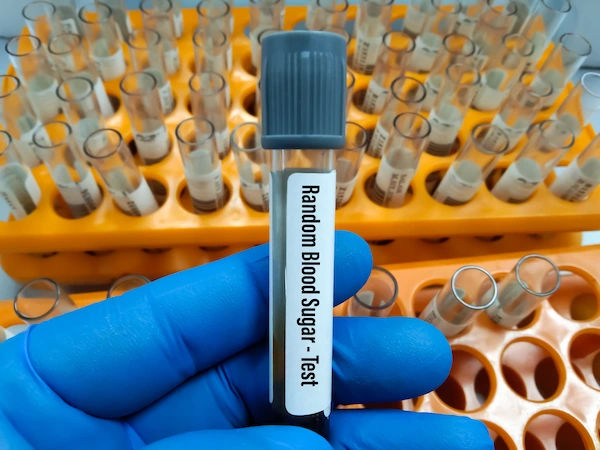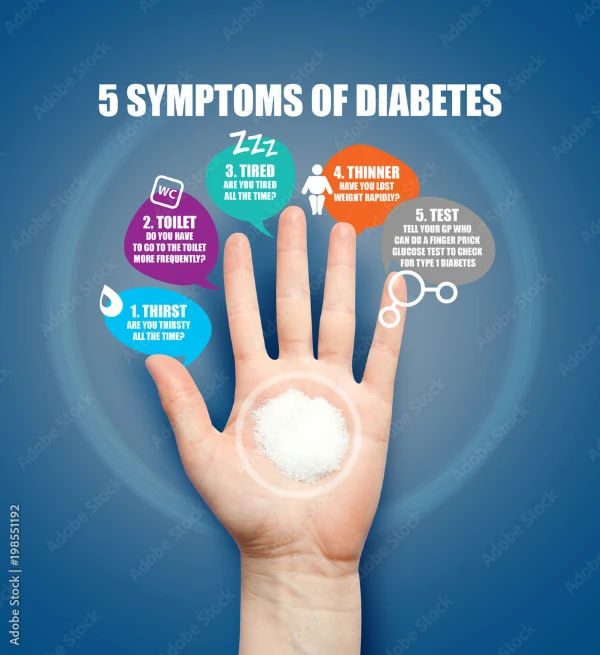Essential Lab Tests Every Woman Over 30 Should Consider
Women over 30 should monitor key health markers. Explore essential lab tests for hormones, thyroid, cholesterol, and more to support long-term wellness and early detection.

Written by Dr. Rohinipriyanka Pondugula
Reviewed by Dr. J T Hema Pratima MBBS
Last updated on 9th Sep, 2025

Reaching your 30s is an important stage in a woman's life, both physically and emotionally. Even if you feel healthy, your body may begin to go through gradual changes related to hormones, metabolism, bone health, and reproductive function. These changes often happen quietly, without clear symptoms, which makes regular health checkups especially important.
Addressing these shifts early can help prevent or manage health issues before they become more serious. Certain lab tests can offer valuable insights into how your body is functioning and help your doctor identify any potential imbalances or risks. With the right information, you can work with your healthcare provider to create a personalised plan that supports your energy, well-being, and long-term health. This guide highlights the key lab tests that women over 30 should consider as part of a proactive approach to staying healthy.
Why Lab Tests Are Essential for Women Over 30?
Your 30s are a pivotal time for your health. While you might still feel youthful, your body's needs and risks begin to evolve. This decade often brings:
- Hormonal Shifts: Hormones like estrogen and progesterone, which regulate your menstrual cycle, mood, and bone health, can start to fluctuate. These changes can impact fertility, energy, and emotional well-being.
- Bone Health Foundation: Peak bone mass is typically reached by your early 30s. Ensuring adequate bone density now is critical for preventing osteoporosis later in life.
- Metabolic Changes: Your metabolism might start to slow down, and risk factors for conditions like diabetes and heart disease can begin to accumulate, often silently.
- Lifestyle Impact: Demanding careers, family responsibilities, and stress can take a toll on your body, making it even more important to monitor your internal health.
Regular lab tests provide a baseline of your health, allowing your doctor to track changes over time, identify potential issues before they become serious, and offer personalised advice on diet, exercise, and lifestyle to support your unique needs.
When to Consider These Essential Health Checkups?
It's recommended for women over 30 to discuss these tests with their doctor as part of their routine annual checkup, even if they feel perfectly healthy. However, you should specifically consider these tests if you experience:
- Changes in Menstrual Cycle: Irregular periods, unusually heavy or light bleeding, or increased premenstrual symptoms.
- Unexplained Fatigue or Energy Dips: Persistent tiredness not relieved by rest.
- Weight Changes: Unexplained weight gain or difficulty losing weight, despite consistent effort.
- Mood Swings or Increased Irritability: Emotional fluctuations that seem more intense or frequent.
- Concerns About Fertility: If you are planning pregnancy or experiencing difficulty conceiving.
- Family History: If there's a family history of hormonal imbalances (like PCOS), osteoporosis, heart disease, or diabetes.
- Lifestyle Factors: If you have a sedentary lifestyle, unhealthy eating habits, or high stress levels.
Being proactive about these tests empowers you to address potential health concerns early, leading to more effective management and better long-term outcomes.
Key Lab Tests Every Woman Over 30 Should Consider
To get a comprehensive picture of your health as a woman over 30, your doctor will likely recommend a panel of blood tests focusing on your hormones, bone health, cardiovascular risk, and overall nutritional status.
Hormone Panel
What it measures: This panel typically includes tests for key female hormones.
- Estrogen (Estradiol): The primary female sex hormone, crucial for reproductive health, bone density, and mood.
- Progesterone: Another vital female hormone, important for menstrual regularity, pregnancy, and can influence mood and sleep.
- TSH (Thyroid-Stimulating Hormone): This is the main test for thyroid function. Thyroid hormones regulate metabolism, energy, weight, and mood. An imbalance can mimic many other conditions.
- LH (Luteinizing Hormone) & FSH (Follicle-Stimulating Hormone): These pituitary hormones regulate ovarian function and can indicate issues like Polycystic Ovary Syndrome (PCOS) or early signs of perimenopause.
- Prolactin: Can affect menstrual cycles and fertility.
Why it's important: Hormonal balance is foundational to a woman's health. These tests help identify imbalances that can cause irregular periods, mood swings, fatigue, weight changes, and fertility issues, guiding targeted treatment.
Bone Density Screening
What it measures: While a DEXA scan (Dual-energy X-ray absorptiometry) is the gold standard for bone density, initial blood tests can assess factors related to bone health.
- Vitamin D Levels: Vitamin D is crucial for calcium absorption and bone strength. Deficiency is common and can contribute to bone weakening.
- Calcium Levels: Measures the amount of calcium in your blood, a key mineral for bone structure.
- Alkaline Phosphatase (ALP): Can be a marker of bone turnover, though also found in the liver.
Why it's important: Women are at higher risk for osteoporosis later in life. Assessing these markers helps ensure your bones are getting the necessary support and can guide early interventions to maintain bone strength.
Book Apollo Vitamin Check Here
Lipid Profile (Cholesterol & Triglycerides)
What it measures: This blood test measures different types of fats in your blood.
- Total Cholesterol: Overall cholesterol level.
- LDL ("Bad") Cholesterol: High levels contribute to plaque buildup in arteries.
- HDL ("Good") Cholesterol: Helps remove excess cholesterol from arteries.
- Triglycerides: Another type of fat in the blood.
Why it's important: Heart disease is a leading cause of death for women. Monitoring your lipid profile helps assess your risk for heart disease and allows for lifestyle adjustments or medication to keep your heart healthy.
Anaemia Screening (Complete Blood Count - CBC & Iron Studies)
What it measures: These tests check the health of your blood cells and iron stores.
- Complete Blood Count (CBC): Provides counts of red blood cells (which carry oxygen), white blood cells (for immunity), and platelets (for clotting).
- Iron Studies (Ferritin, Serum Iron, TIBC): Measures how much iron is in your blood and how much is stored in your body (Ferritin).
Why it's important: Anaemia (often due to iron deficiency) is common in women, especially those with heavy periods. It can cause significant fatigue, weakness, dizziness, and pale skin. Screening helps identify and address anaemia, restoring energy and overall well-being.
Book Apollo Anaemia Profile Here
Blood Glucose Tests (Fasting Glucose, HbA1c)
- What it measures: These tests assess your blood sugar levels. Fasting glucose measures current blood sugar, while HbA1c provides an average over 2-3 months.
- Why it's important: Women over 30, especially those with risk factors like family history or weight gain, are at risk for developing prediabetes or Type 2 diabetes. Early detection allows for lifestyle changes to prevent or manage the condition effectively.
Book Apollo Diabetes Panel Here
The results from these essential lab tests, combined with your symptoms, medical history, and a thorough physical examination, will help your doctor accurately assess your current health status and identify any potential risks. This detailed understanding allows them to create a personalised health plan designed to empower you to live your healthiest life.
Get Tested Easily with Apollo 24|7
If your doctor recommends essential lab tests to check your health as a woman over 30, choosing a reliable and convenient testing service is important. Apollo 24|7 makes this simple by providing accurate lab tests with quick results. This helps you and your doctor understand your health clearly and create a personalised plan to manage your well-being effectively.
Why Choose Apollo 24|7 for Your Health Checkups?
- Comprehensive Test Panels: Access complete test panels, such as the Apollo Full Body Checkup Female Advance, that cover all essential markers for a thorough assessment of hormones, bone health, lipid profile, and anaemia screening.
- NABL-Accredited Labs: Tests are done in labs certified by the National Accreditation Board for Testing and Calibration Laboratories (NABL), ensuring accurate and trustworthy results.
- Home Sample Collection: Enjoy the convenience of blood sample collection at your home, saving you time and providing privacy.
- Easy Online Booking: Schedule your test quickly and easily through the Apollo 24|7 app or website.
- Fast Digital Reports: Receive secure, detailed test reports online promptly, ready to share with your doctor.
- Trusted Brand: Benefit from the trusted expertise and healthcare legacy of Apollo Hospitals Group, one of India’s most respected medical networks.
By choosing Apollo 24|7, you get access to dependable, convenient diagnostic services that make it easier to understand and manage your health effectively.
For the most accurate and current pricing for tests like the Apollo Full Body Checkup Female Advance, it is best to check the Apollo 24|7 website, use their mobile app, or contact their customer support team directly. Pricing may vary based on your location, available offers, or membership benefits.
Get These Tests To Get A Yourself Checked up
Conclusion
For women over 30, proactive health management through essential lab tests is not just a recommendation; it's an empowerment tool. Understanding your hormone levels, bone density, lipid profile, and screening for anaemia provides crucial insights into your body's unique needs at this stage of life.
These tests help your doctor identify potential imbalances or risks early, allowing for timely interventions and personalised health strategies. Taking charge of your health now means investing in a future of vitality, energy, and well-being. If you're a woman over 30, consult your doctor to discuss which of these essential tests are right for you, and take the proactive step towards a healthier tomorrow.





.webp)
